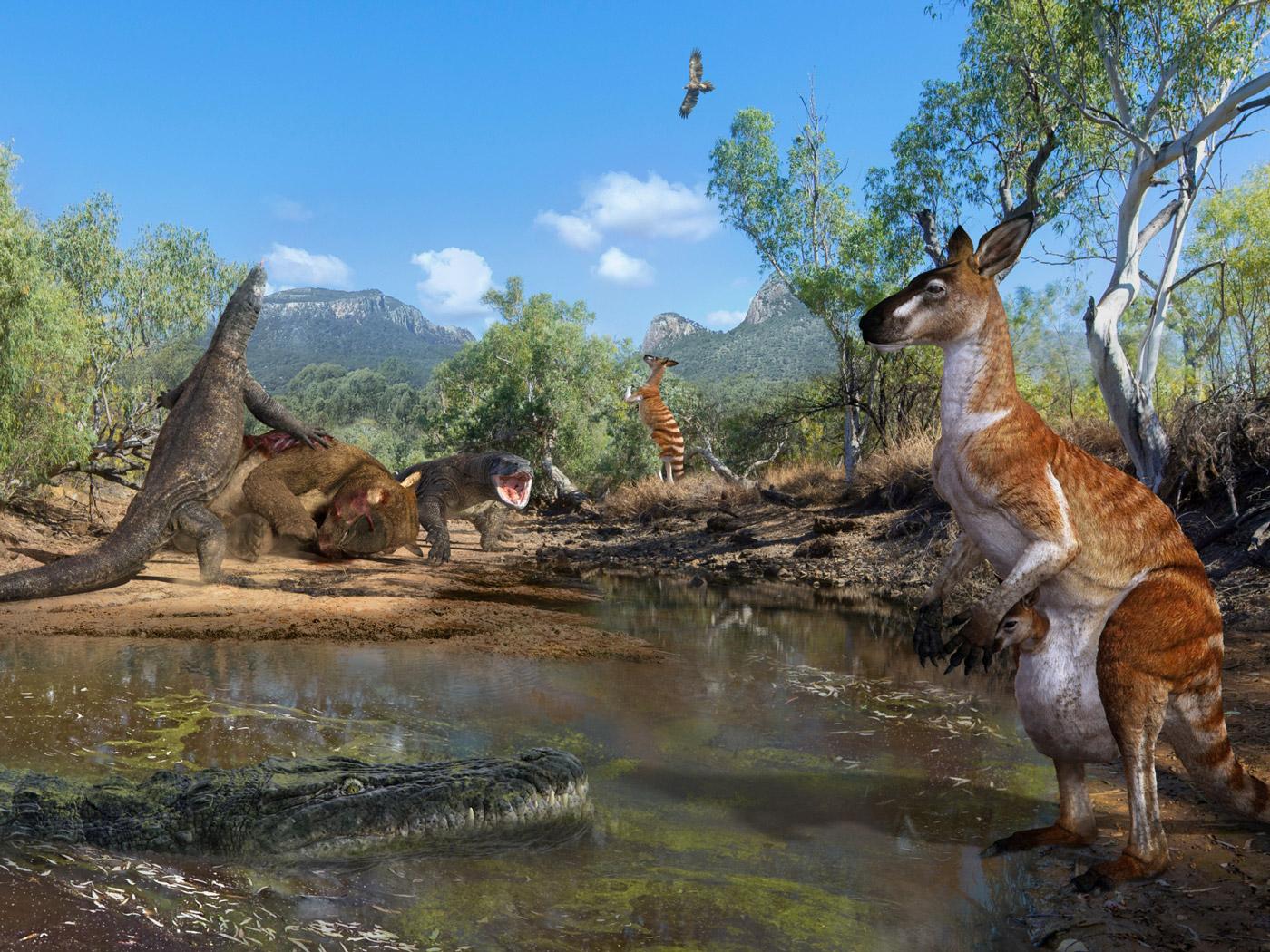Scientists in the news this week: May 22, 2020
University of Adelaide scientists featured strongly in the news this week, particularly in the latest edition of GroundCover, the bi-monthly magazine of the Grains Research and Development Corporation.
There was also substantial coverage across news channels about the announcement of a new state-of-the-art centre for genomics in South Australia.
*Indicates subscriber only articles

Associate Professor Stuart Roy and SARDI's Dr Rhiannon Schilling are looking for opportunities to better understand soil and crop variability in sodic and saline soils. Image: Katherine Hollaway, GRDC
Agriculture, food and wine
GRDC GroundCover shares a story on new high-tech solutions in agriculture where Dr Rhiannon Schilling, who is based at the South Australian Research and Development Institute (SARDI), leads the agronomy program that Associate Professor Stuart Roy is also involved in.
This program aims to generate a better understanding of the soil factors that impact on grain yield variability and to identify high-tech solutions such as machine learning, to overcome these issues. Read the online version of the article.
Weed and crop ecologist Associate Professor Gurjeet Gill gives expert advice to the Australian Grain magazine on the sowing of crops and answers key questions about delayed sowing and the impact it has on weed control of populations.
Head of School Professor Martin Cole speaks to New Scientist addressing the impact that the COVID-19 pandemic has had on food affordability and access for millions of people globally.
Dr Katja Hogendoorn was interviewed on ABC Radio Hobart, discussing facts about bees and answering questions from listeners.
The Biometry Hub recently hosted US Professor of Statistics Omer Ozturk, who provided expertise on cutting the cost of field trials in half using an innovative sampling procedure. Dr Olena Kravchuk has hopes of extending the applicability of these structured sampling procedures to field surveys in agriculture. Biometry Hub biometricians Peter Kasprzak and Sam Rogers will be closely involved in building the local capacity in these methods for Australian growers. This was a key feature in GRDC GroundCover.
GRDC GroundCover reports that pre-breeders working to improve the heat tolerance of chickpea during flowering have delivered the first seed from this research for use by breeders. The seed was harvested in 2019 by researchers in the The ARC Research Hub for Legumes in Sustainable Agriculture. Here's the online version first published in April.
GRDC GroundCover also reported on a collaborative study that aimed to decode the secrets of wheat energy use to make way to increase yield. The Plant Accelerator was the location for two trials of wheat in potted plants, this was primarily used to identify genetic associations which proved important for yield implications.
Stock Journal shared the findings of Chris Penfold and Jake Howie’s three-year trial. Their research found that incorporating pig waste prior to seeding had no additional benefits over leaving it on top of the soil. A second article focused on the underrated general knowledge and benefits of using manure with grains.
Former plant breeding professor Andy Barr was quoted in a Stock Journal article titled 'Growers to determine if GM suits'. Professor Barr said there was potential to improve crop varieties, but had ‘mixed feelings’ about the progress of GM.
Ongoing coverage of PhD student David Brunton from the Weed Science Research Group, who comments on seed terminator machines in the Stock Journal.

A new species of wasp has been discovered by students from South Australia's Riverland. Image: Dr Erinn Fagan-Jeffries
Biological sciences
Dr Erinn Fagan-Jeffries spoke to ABC News and ABC Radio about a project she leads which focuses on discovering and documenting native Australian wasps.
As part of this project she visited primary schools and trained students to catch insects using malaise traps, contributing to the discovery of a new wasp species. The new species is yet to be named.
Associate Professor Michael Beard provides insight to *The Saturday Paper on how researchers approach novel viruses based on previous pandemics and existing virus research and then adapt the research to clinical needs. Researchers of the virus SARS-CoV-2 have a current focus on understanding how the virus causes disease, antivirals and vaccine.
Dr Barbara Langille features on sciences news platform phys.org in an article focused on how life on earth has evolved underground, using her analysis on the DNA of Western Australian subterranean diving beetles living in aquifers to highlight the complicated nature of evolution and potentially point to neutral evolution. The article also features an image by Dr Karl Jones.

Humans coexisted with three-tonne marsupials and lizards as long as cars in ancient Australia. Image: Queensland Museum
Physical sciences
New findings shed light on the mystery of what drove ancient megafauna, such as three-tonne marsupials and lizards that humans coexisted with in ancient Australia, to extinction.
This research was conducted by experts across Australian universities, including Associate Professor Lee Arnold and was published in Nature Communications and across news multiple platforms including The Conversation, Nambucca Guardian News, Mirage News, and The Guardian.
Students and alumni
Rural Business Magazine features a profile of agricultural sciences graduate Riley Curdow. Riley has joined the Elders’ Graduate Agronomist Program under the guidance of senior agronomist Jason McClure at the Elders’ Naracoorte branch and “hopes to have a fruitful career in the industry”.
Share your story
If you've featured in the media this week and don't get a mention above, send an email with the details to Rose Fitzmaurice in the Faculty of Sciences Marketing and Student Recruitment team.
